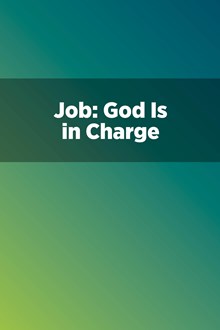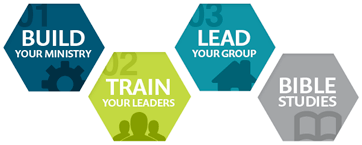Job is not only the direct word of God but also a great literary masterpiece. Poet Alfred Tennyson called Job, "the greatest poem of ancient or modern times." British author Thomas Carlyle viewed it as, "… one of the grandest things ever written with a pen … such free flowing outlines, grand in its sincerity, in its implicity, in its epic melody, and response of reconcilement."
This nine-session course will help you understand the masterpiece that is the book of Job - its themes, characters, and meaning for Christians today.
Introduction: About the Book of Job
Session One
Seeing Behind the Curtain
In this first chapter, we get a glimpse of what goes on in the unseen world and meet the man called Job.
Job 1
Job did not have the benefit of the written Word of God, yet he knew God in a way that many of us today do not.
Session Two
The Mystery of How God Works
God gives Satan free reign in Job's life, within limits.
Job 1:12–2:13
We do our best to study and know God, using the knowledge and wisdom he gave us, but our wisdom is not even close to being comparable to his.
Session Three
Living Through Despair
Job feels the anguish we all feel in difficult circumstances.
Job 3–5
Though most people associate Job with patience, he was not always a model of serenity. Though upright and blameless, Job was still human, as we'll see in this lesson.
Session Four
The Defense Begins
Job understandably begins to defend himself against the charges his friends throw at him.
Job 6–10
As we progress in Job, we see the beauty described by The Interpreter's Bible: "Its speeches are hung like pearls on so tenuous a string of narrative as almost to shimmer, each in its own right, in midair … "
Session Five
Be Slow to Judge
Job's friends continue to demonstrate what not to say to someone who is suffering.
Job 11–16:21
Zophar makes Bildad and Eliphaz look like pillars of empathy and understanding. And, understandably, Job comes back swinging.
Session Six
My Redeemer Lives
In spite of his despair, Job yet clings to God.
Job 16:22–21:34
Job continues to rail against God, crying out against his perceived injustice. But in the midst of his cries, he declares, "I know that my Redeemer lives."
Session Seven
Seeking to Understand God
We start round three, where Eliphaz and Bildad speak for the final time and Job responds passionately to his friends' increased intensity.
Job 22–28
Job erroneously questions God's judgment, believing he is not just. It's difficult to know if Job is crying out in frustration and confusion because of his own suffering, but through it all, Job is struggling to understand God.
Session Eight
Defense Before the Judge
Job pleads his case before the only judge that matters.
Job 29–37
In this study, we see Job redirect his comments from his friends to God. It is as though he has finished arguing his case and now presents his closing arguments.
Session Nine
God Speaks
This final study deals with the remarkable and powerful answer God gives Job.
Job 38–42
Job had the remarkable experience of hearing directly from God. The last few chapters of Job allow us to listen in.
Total number of pages—91





